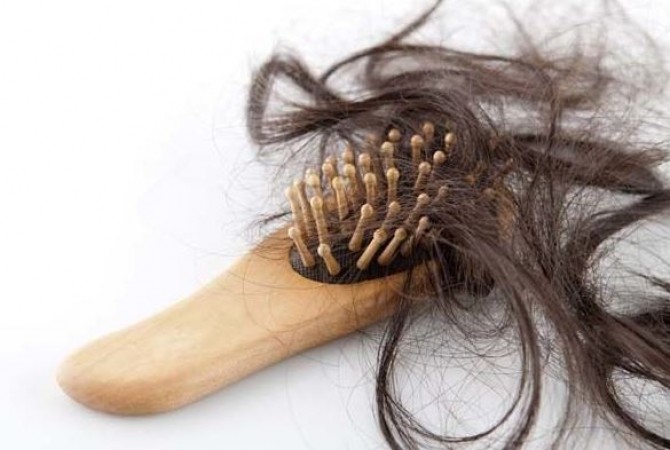
Hair fall is a common issue that affects millions of people worldwide. While losing some hair every day is normal, excessive hair fall can be distressing and could indicate underlying health conditions that should not be ignored. Our hair can serve as a mirror to our overall health, and changes in its appearance and texture can provide valuable clues about what might be going on internally. In this article, we will explore some of the diseases and health conditions that excessive hair fall might be indicative of, urging readers not to dismiss this symptom but rather seek appropriate medical attention when necessary.
Hypothyroidism:
Hypothyroidism is a condition in which the thyroid gland does not produce enough thyroid hormones. This hormonal imbalance can lead to hair thinning and increased hair shedding. Additionally, the hair may become dry, brittle, and lose its luster. If left untreated, hypothyroidism can have various adverse effects on the body, making early detection crucial for better management and prevention of complications.
Alopecia Areata:
Alopecia areata is an autoimmune disorder where the body's immune system mistakenly attacks hair follicles, leading to sudden hair loss in patches. While the exact cause remains unknown, stress and genetics may play significant roles in its development. Recognizing this condition promptly can help in initiating appropriate treatments, such as corticosteroids and immunotherapy, to promote hair regrowth.
Polycystic Ovary Syndrome (PCOS):
PCOS is a hormonal disorder that affects women of reproductive age. It is characterized by irregular menstrual cycles, excessive androgen (male hormone) levels, and the development of small ovarian cysts. One of the common symptoms of PCOS is hair loss or thinning hair, particularly on the scalp. Proper diagnosis and management of PCOS can help in stabilizing hormone levels and controlling hair fall.
Iron Deficiency Anemia:
Anemia occurs when the body lacks enough healthy red blood cells or hemoglobin to carry oxygen to tissues adequately. Iron deficiency anemia, in particular, can lead to hair loss as iron is essential for healthy hair growth. Individuals with anemia may experience excessive hair shedding and may notice their hair becoming weaker and more prone to breakage. Consuming iron-rich foods or supplements, as prescribed by a healthcare professional, can help address this deficiency and restore hair health.
Telogen Effluvium:
Telogen effluvium is a condition where a significant number of hair follicles enter the resting (telogen) phase prematurely and shed simultaneously after a few months. This condition can be triggered by various factors such as stress, sudden weight loss, surgery, or a severe illness. Identifying the underlying cause and addressing it can often lead to hair regrowth and recovery.
Excessive hair fall should not be brushed off as a mere cosmetic concern. Instead, it should be seen as a potential indicator of underlying health conditions that require attention. By recognizing the signs early on, individuals can seek proper medical evaluation and necessary treatments to manage the root cause of hair loss effectively. Regular health check-ups, a balanced diet, stress management, and a healthy lifestyle can play pivotal roles in maintaining not just luscious locks but also overall well-being. Remember, healthy hair starts with a healthy you!
10 Vegetables to Avoid During Rainy Season for a Healthy Diet
PM Dialysis Programme: Over 19.58-La Patients Benefit from Services
Expert Tips to Safeguard Your Bike Engine During Rainy Season